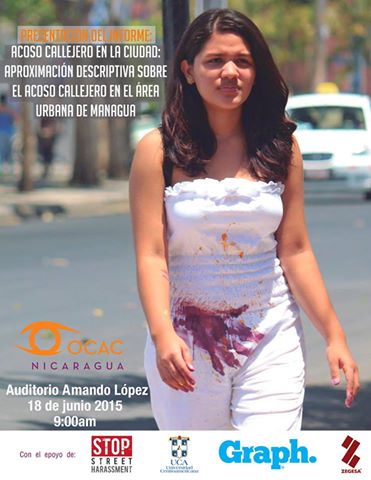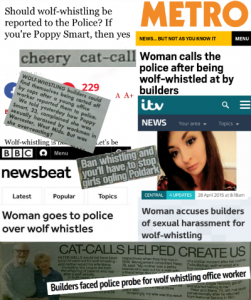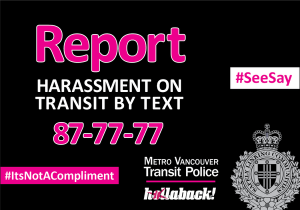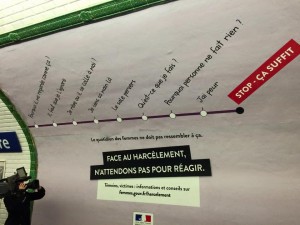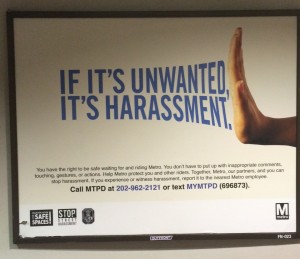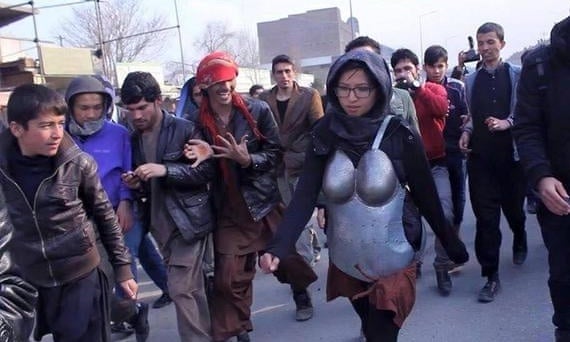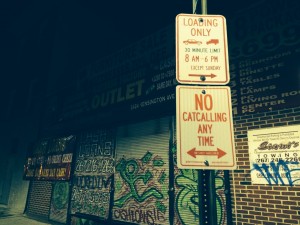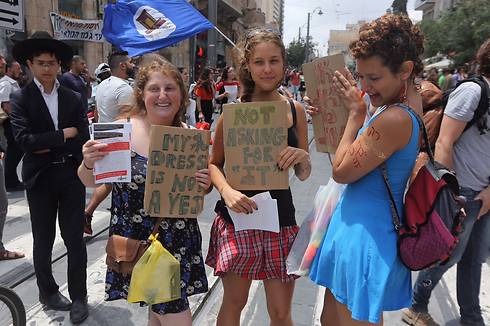I’m 13 years old and yesterday at night I went grocery shopping with my dad. My dad had forgotten something, so I went ahead. While I waited for him, a car passed by and the guy in the passenger seat said, “Hey baby girl.” The guy stayed there for like about 30 seconds just checking me out. I didn’t say anything because this guy was like more than 20 years old . I felt weird. Idk. I definitely didn’t like it at all.
– Anonymous
Location: California
Share your street harassment story for the blog.
See the book 50 Stories about Stopping Street Harassers for more idea.


